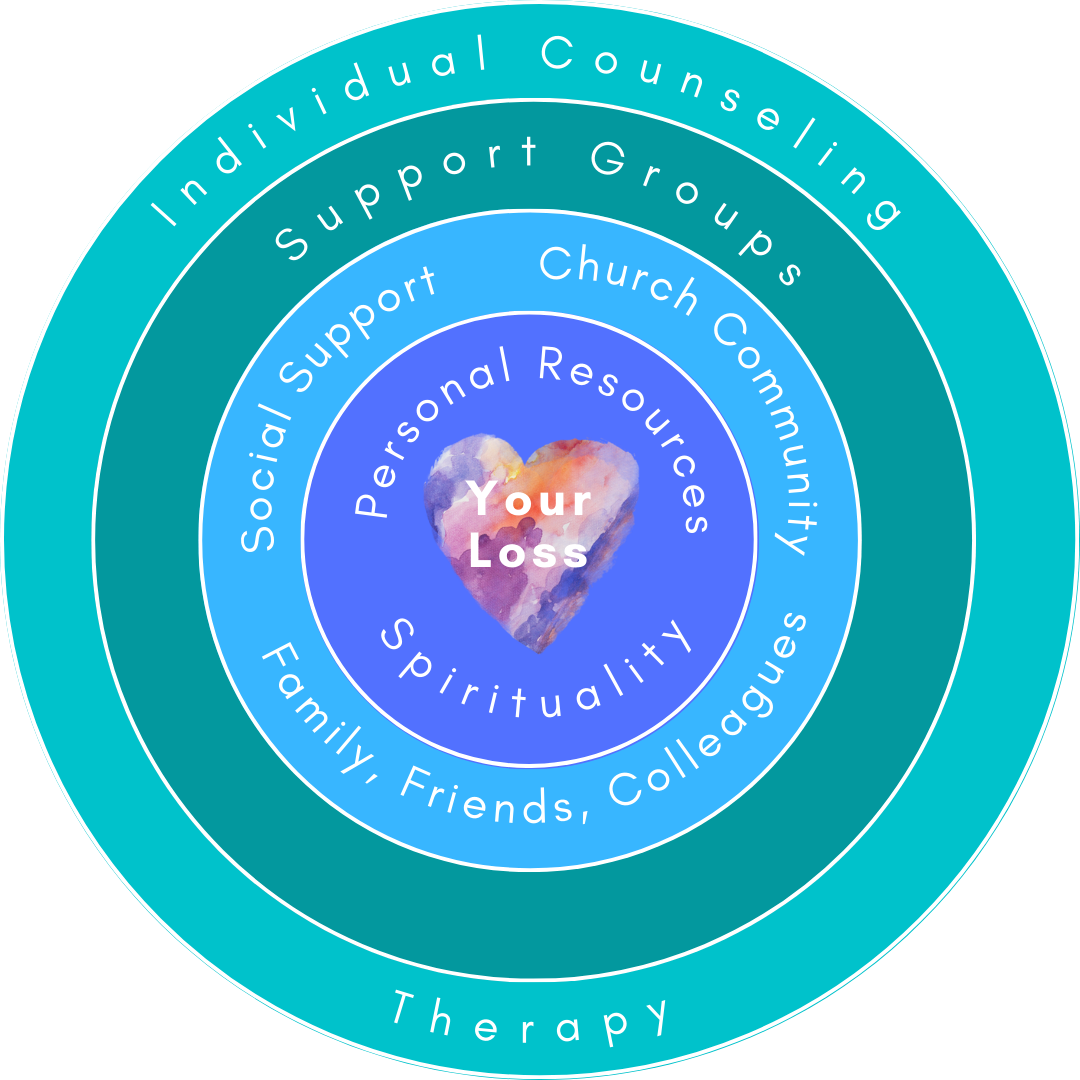What Kind of Support is Right for Me?
By Jenn Flaum, MBA, LCSW and Allison Gary, MA, LPC
After a significant death loss or life transition knowing what support is available can be helpful. There is no right or wrong and learning about and trying different types of support can be the best step.
Types of support can include:
Your Own Support System – think of friends, family members, church members or community members who have helped you in the past. Keep in mind, one person may not be able to be your total source of support.
Online Grief Communities – reading about and interacting with others online who have experienced a loss can bring a sense of peace and feeling that you aren’t alone. Before participating in an online forum or chat, do some research to ensure that comments are supportive and monitored. While learning from others online can be helpful, without having a facilitator people can post comments or reactions that may not be helpful or that can be unsupportive.
Peer Support Groups – sharing and listening to others can be a powerful experiencing and bring a sense of healing and connection. Groups can be an “Open Group” format where there is no set curriculum and the participants may be different each group since anyone can join or drop at any time. A “Closed Group” format is a group with a beginning and end with the same participants each time. A peer-based group is not therapy or a substitute for therapy. Grief support groups can be therapeutic in nature, but are not clinical therapy.

What to Expect in a Peer Group:
- ·HeartLight Center groups are lead by a trained grief group facilitator.
- ·To be able to share what feels comfortable to you.
- ·To be in a supportive environment.
- ·To listen when it feels best not to talk.
When should I join a group?
- Some people find the group setting to be helpful immediately after a loss, while others do not join until years later. You will know when the time is right for you. You are welcome to try it at any time, and if it doesn’t feel right that’s okay! You can try again another time or find another source of support.
Helpful questions to ask when looking for a grief support group:
·What training does the facilitator of the group have?
·Is there a religious or spiritual affiliation?
·Is there a curriculum?
·Are there openings? When does the group meet and for how long?
·How do I get started?
Individual Grief Counseling – seeking professional guidance and support can be helpful after a significant loss or life event. Trained and licensed providers are bound by ethical codes, requiring them to honor privacy and confidentiality. It can feel freeing to share in a safe, unbiased, non-judgmental and confidential space. Finding someone who is knowledgeable in grief and aligned with your needs, lifestyle and values, is important. If you find yourself working with someone who is not helpful, don’t give up. There are many different approaches and professionals who can be helpful.
What to Expect in Individual Grief Counseling:
- A good grief counselor will not judge you or make assumptions about your experiences.
- There may be an ease of sharing more personal information- things that might otherwise feel unsettling or embarrassing to share with others
- A therapist or counselor will have evidence based approaches to guide ask questions or offer techniques that can help the healing process.
Types of Professionals:
- Therapists and Counselors: licensed professionals such as psychiatrists, psychologists, clinical social workers or mental health counselors and are trained in a wide array of modalities. They are required to follow regulations set by their respective boards that include maintaining confidentiality, ethical codes, and continuing education requirements.
- Coaches: may hold certifications in their fields but are not licensed to provide clinical therapy. Coaches are not regulated by licensing boards and are not required to have specific training or education.
When should I find an individual grief counselor or therapist?
- You have experienced a loss and want someone to talk to and process the loss and life
- The loss you experienced was sudden or traumatic.
- You are having upsetting dreams, recurring images or unsettling memories
- You are thinking about or doing things that are harmful to yourself or others
- You feel like you are “stuck” in your grief
- Your grief over time is interfering with your work or day-to-day life
- You want to explore, in depth, how your loss can be integrated and transforming in your life
Helpful questions to ask when looking for an individual grief counselor:
• What training or education do you have?
• Are you licensed?
• How long have you been in the field? What is your credentialing?
• What is your approach?
• Do you use any modalities aside from talk therapy? (EMDR or Brain Spotting can be helpful for trauma)
• What is your cost and do you accept insurance?
For the printable version of this article, click here!
